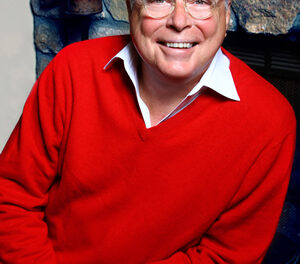Robert Schumann: Carnival, Op. 9 and Fantasie in C, Op.17. Chi-Chen Wu, fortepiano (Rodney J. Regier – Freeport, Maine). Musica Omina #705, © 2017; $14.99. arkivmusic.com.
The early music revival, popularly referred to as HIP (Historically Informed Performance), began as recreations of medieval and then Baroque music, most famously the Four Seasons of Antonio Vivaldi, first with use of smaller performance forces followed by use of period instruments or reproductions thereof. The Classical period came next, and the Romantic period is now being widely delved into.
Musica Omina recording artist Chi-Chen Wu has racked up an enviable resume of scholarship and performance including studying fortepiano with Malcolm Bilson and performance practice with Neal Zaslaw. This fascinating CD joins her gold medal winning Musica Omina album of the complete Schumann sonatas for piano and violin (MO 0611).
The website of fortepiano maker Rodney J. Regier is worth exploring for details about the extended compass (80 notes, 6-1/2 octaves) Viennese fortepiano based upon studying fortepianos by Conrad Graf, c.1830, and, later, one of the earliest instruments built with an Ignaz Bösendorfer label, c.1828, used in this recording.
Among Schumann’s contributions to German Romanticism was his creation of a unique new genre of solo piano music frequently consisting of cycles of short pieces with evocative poetic titles. Much of the composer’s music is underlain or characterized by his treatment of the dual aspects of his personality. His calm and deliberate side is personified by Eusebius in contrast to his fiery, impetuous side by Florestan. Both Op. 9 and Op.17 share this as well as Schumann’s attachments to and infatuations with women.
Carnaval was composed beginning in December 1834 while Schumann had become attached to Ernestine von Fricken. Her monetary prospects, since she was adopted, were insignificant, and nothing came of the relationship. Her place of residence, Asch, inspired Schumann to toy with the musical letter possibilities by using the four-note moto “AS-C-H” and “A-S-C-H” in all but two of the twenty-one pieces of the work which evokes a masked ball during carnival season. Many of the pieces are musical portraits of commedia dell’arte characters (such as Pierrot and Arlequin) (Numbers 2-3) or of composers he admired (Chopin and Paganini), as well as dances.
The Fantasie in C, Op. 17, was composed during the period Schumann was forbidden to see Clara Wieck; he despaired of their relationship being ended. The melancholic first movement quotes the theme of the “Notturno” from Clara’s Soireés musicales, Op. 6. The composer’s impetuous Florestan temperament dominates the second movement while Eusebius’ introspection haunts the third movement.
Chi-Chen Wu’s mastery of Schumann’s intensely personal style is glowingly present throughout her performance of these two works. Her control of dynamics and tone are marvelous, as is the clarity of her articulation of phrases. The darker moods, such as the outer movements of the Fantasie, are delineated with deep empathy. Rousing passages such as “Marche des Davidsbündler contre les Philistins” are delivered with considerable verve. The warmth and delightful tone of Regier’s spectacular fortepiano are very much co-stars of this CD. Its sound has been beautifully captured by engineer/producer Joel Gordon. The extensive program notes by Peter Watchorn are fascinating and informative as well as extensively illustrated.
Note: This artist appeared in Greensboro several years ago as part of the Helios Piano Trio.











